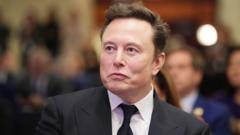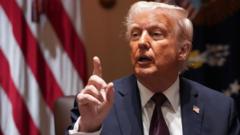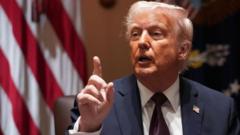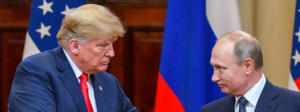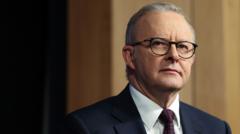summary: Following the announcement of new tariffs by the US, Canadian Prime Minister Mark Carney has stated that the traditional economic relationship between Canada and the US is over, compelling Canada to rethink its trade strategies and respond with retaliatory tariffs.
title: Canada Shifts Trade Strategy as PM Mark Carney Challenges US Tariffs
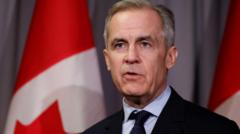
title: Canada Shifts Trade Strategy as PM Mark Carney Challenges US Tariffs
description: Prime Minister Mark Carney declares a new economic vision amid escalating trade tensions with the United States, indicating that the longstanding partnership has fundamentally changed.
Canadian Prime Minister Mark Carney recently announced a transformative shift in his country's trade dynamics, signaling the end of Canada's long-standing relationship with the United States. Carney stated that this relationship—characterized by close economic integration and military cooperation—has been irrevocably altered by President Donald Trump's decision to implement new tariffs.
Addressing reporters in Ottawa after a cabinet meeting, Carney emphasized the urgency of "fundamentally reimagining our economy" as the US prepares to impose a 25% tariff on imported vehicles and parts. These tariffs, which Trump declared as a permanent measure, prompted Carney to assert that the historical Canada-US Automotive Products Agreement, a key trade deal established in 1965, is now defunct.
Despite these challenges, Carney expressed confidence in Canada’s ability to maintain a viable auto industry, provided that there is collaboration between the government and business sectors to adapt. He stressed the need for Canada to devise an economy that can withstand these tariffs, suggesting a reevaluation of its trading relations beyond the US.
In response to Trump's tariffs, which have already begun to impact approximately C$60 billion worth of Canadian goods, Carney announced that Canada would retaliate with measures aimed at maximizing impact on the US. The new car tariffs will be implemented starting April 2, with additional duties on parts anticipated to follow in May.
The international atmosphere thickened as Trump warned Canada and the European Union against forming alliances that could harm US economic interests. “If the European Union works with Canada to inflict economic pain on the USA, expect much larger tariffs,” he declared on his Truth Social platform.
Carney's comments and subsequent meetings with ministers reflect a change in his political campaign strategies as Canada approaches its general elections, scheduled for April 28. This unrest has also affected leadership within the opposition, with Conservative leader Pierre Poilievre calling the tariffs "unjustified," while NDP leader Jagmeet Singh labeled them a betrayal, emphasizing solidarity with workers in impacted regions.
As Canada grapples with these challenges, the future of its trade relationship with the US remains uncertain, and Carney's push for redefinition signifies an attempt to navigate a fraught landscape shaped by tariffs and economic nationalism. Meanwhile, Mexico is also poised to respond to the tariff situation, further complicating the North American trade framework established by previous agreements.


